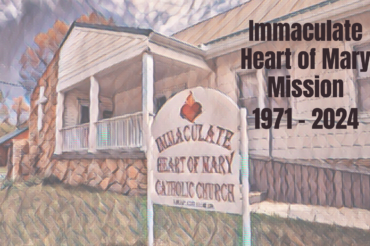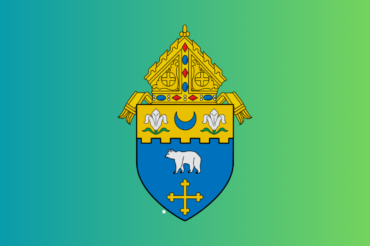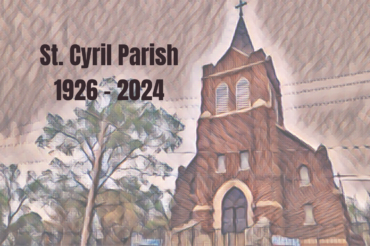Has Anything Changed?
Over the past weeks, I have received many letters from concerned Catholics over the renewed scandal surrounding child sexual abuse by Catholic clergy. I am grateful for the time and effort that goes into writing one’s bishop, and grateful for the passion expressed in the desire that our Church be purified and restored, so that it can be that “city on a hill” and the “light of the world” which Jesus intends it to be.
One of the things I also became aware within the letters and of so many local and national comments that many of our members are not aware of the remarkable changes that have occurred in our Church, and specifically our diocese, over the recent years. The latest news events can give the impression that nothing has changed. The Pennsylvania Grand Jury Report which was the catalyst for the latest scandal was a historical review of behavior in several of the Pennsylvania dioceses going back 70 years, with the majority of the abuse in the seventies and eighties. What was somewhat new in the report was a more detailed description of how some bishops responded to those incidents with a lack of transparency and accountability. One can easily get the impression that nothing has changed in any diocese from the 1940s onward.
It is often difficult to find the right balance in sharing good news on this subject. It can appear that there is an effort to minimize or distract from the seriousness of what has happened to and, tragically, often continues to impact negatively victim-survivors. It is also awkward in that one might be perceived as “tooting one’s own horn” as a way of soliciting praise. But, on the other hand, the other extreme is problematic too. If good news is not shared fully, many will be left with the impression that the Church and her institutions are not safe, wholesome places for worship, learning, and community.
Several of the letters I have received urge the implementation of protocols for safe environments and removing abusers. Others ask about how we are forming our seminarians. It struck me that I need to share more information on these topics, not less; share more often the great work of many of our parishioners, parish and chancery staff, and clergy. Our diocese has devoted many good people and abundant resources to making our parishes and schools safe for our children and young people. We have clear and strong protocols for responding to allegations of child sexual abuse, beginning with reporting and cooperating with law enforcement and additionally, not to interfere with active law enforcement investigations, an independent Ombudsman to investigate suspected agents of the Church (i.e., priest, deacon, lay employees) likewise in a search for the truth. Once an investigation is completed, the Independent Review Board helps to advise me on a person’s suitability for ministry. Our Office of Child and Youth Protection offers training to identify, report and prevent abuse through our safe environment policy. Over 35,000 adults in our diocese have been trained since 2002. About 13,000 children receive age-appropriate training each year in our diocesan schools and parish schools of religion. We require background checks of all clerics, diocesan employees and of anyone who volunteers in a program for children or youth. We work to promote healing and reconciliation by providing outreach and care to those abused by an agent of the Church. The ministries of healing, prevention and responding to allegations are strong in this diocese and we continue to review and make improvements to strengthen our safety net of protection for children and right living.
Many changes have also been made over the most recent decades in our seminaries to make our programs of formation comprehensive and thorough so that our parishes have healthy, holy, joyful priests. Our diocese and each of the seminaries we use have admissions processes that require each applicant to undergo a thorough psychological evaluation and comprehensive background check, so that we have a detailed knowledge of each man’s mental and psychological health, along with his personal history. Our seminaries have counselling and psychological services, including psychologists, to assist in human development. Each seminarian meets regularly with both a spiritual director and a formation advisor. These personnel meet several times a year to assess the progress of each seminarian in all the dimensions of formation so that any potential problems can be identified and addressed for the sake of the man and of the Church. Finally, I have instructed all of our seminarians to immediately inform me of any misconduct they witness or experience in the course of their formation, and to do so without fear.
We are blessed to have good men as our seminarians. They realize their future service as priests will present challenges and hardships that did not confront previous generations, but they are filled with faith and a joyful love for Christ and his Church, and a desire to say “yes” to God’s call to generously serve others and take up the Cross and follow Jesus. Please continue to pray for them as they work with our seminary formation staffs to become “parish-ready.”
+ Most Reverend James V. Johnston, Jr.
Bishop of Kansas City-St. Joseph
Catholic Key, October 26, 2018 issue
Bishop Johnston’s October Prayer Intention
For married couples longing for children but who have encountered difficulties conceiving.Pope Francis’ October Prayer Intention
That consecrated religious men and women may bestir themselves, and be present among the poor, the marginalized, and those who have no voice.





